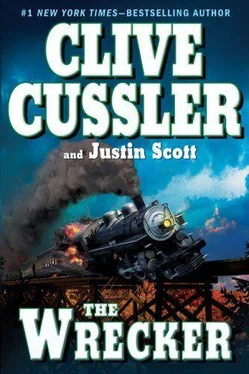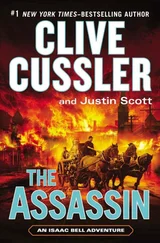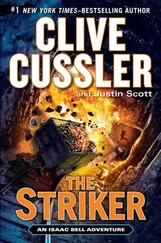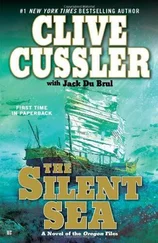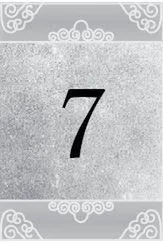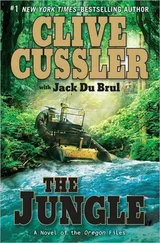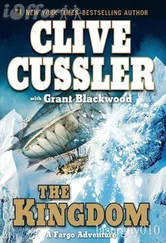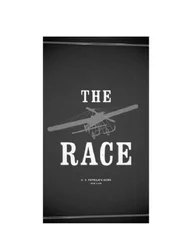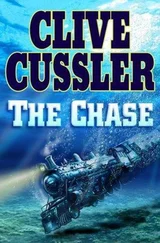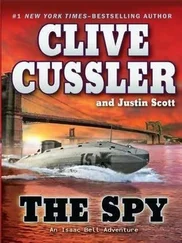The lumberjack did not blink. Instead, he backed up four fast steps and pulled a second, shorter knife that had no handle. “Want to bet I can throw this more accurate than you can shoot that snub nose?” he asked.
“I’m not a gambler,” said Bell, whipped his new Browning from his coat, and shot the bowie knife out of the lumberjack’s hand. The lumberjack gave a howl of pain and stared in disbelief at his shiny knife spinning through the sunlight. Bell said, “I can always hit a bowie, but that short one you’re holding I’m not sure. So, just to be on the safe side, I’m going plug your hand instead.”
The lumberjack dropped his throwing knife.
“Where is Don Albert?” Bell asked.
“Don’t bother him, mister. He’s hurt bad.”
“If he’s hurt bad, he should be in the hospital.”
“Cain’t be in the hospital.”
“Why?”
“The cinder dicks’ll blame him for the runaway.”
“Why?”
“He was on it.”
“On it?” Bell echoed. “Do you expect me to believe he survived a mile-a-minute crash?”
“Yes, sir. ‘Cause he did.”
“Donny’s got a head like a cannonball,” said the old woman.
Bell pried the story, step-by-step, out of the lumberjack and the old woman, who turned out to be Don Albert’s mother. Albert had been sleeping off an innocent drunk on the gondola when he interrupted the man who set the gondola rolling. The man had bashed him in the head with a crowbar.
“Skull like pig iron,” the lumberjack assured Bell, and Don’s mother agreed. Tearfully, she explained that every time Don had opened his eyes in the hospital, a railroad dick would shout at him. “Donny was afraid to tell them about the man who bashed him.”
“Why?” Bell asked.
“He reckoned they wouldn’t believe him, so he pretended to be hurt worse than he was. I told Cousin John here. And he rounded up his friends to carry Donny off when the doctor was eating his supper.”
Bell assured her that he would make sure the railroad police didn’t bother her son. “I’m a Van Dorn investigator, ma‘am. They’re under my command. I’ll tell them to leave you be.” At last, he persuaded her to take him into the shack.
“Donny? There’s a man to see you.”
Bell sat on a crate beside the plank bed where the bandage-swathed Don Albert was sleeping on a straw mattress. He was a big man, bigger than his cousin, with a large moon of a face, a mustache like his cousin‘s, and enormous, work-splintered hands. His mother rubbed the back of his hand and he began to stir.
“Donny? There’s a man to see you.”
He regarded Bell through murky eyes, which cleared up as they came into focus. When he was fully awake, they were an intense stony blue, which spoke of fierce intelligence. Bell’s interest quickened. Not only was the man not in a state of coma, he seemed the sort who might have made a sharp observer. And he was the only man Bell knew of who had been within just a few feet of the Wrecker and was still alive.
“How are you feeling?” Bell asked.
“Head hurts.”
“I’m not surprised.”
Don Albert laughed, then winced at the pain it caused him.
“I understand a fellow bashed you one.”
Albert nodded slowly. “With a crowbar, I believe. Least, that’s what it felt like. Iron, not wood. Sure didn’t feel like an ax handle.”
Bell nodded. Don Albert spoke as a man who had been slugged by at least one ax handle in his life, which would not be that unusual for a lumberjack. “Did you happen to see his face?”
Albert glanced at his cousin and then his mother.
She said, “Mr. Bell says he’ll tell the cinder dicks to lay off.”
“He’s a straight shooter,” said John.
Don Albert nodded, wincing again as movement resonated through his head. “Yeah, I saw his face.”
“It was night,” said Bell.
“Stars on the hill are like searchlights. I had no campfire down there on the car, nothing to blind my eyes. Yeah, I could see him. Also, I was looking down at him-I was up on top of the ties-and he looked up into the starlight when I spoke, so I seen his face clear.”
“Do you remember what he looked like?”
“Surprised as hell. Plumb ready to jump out of his skin. He wasn’t expecting company.”
This was almost too good to be true, thought Bell, excitement rising. “Can you describe him?”
“Clean-shaven fellow, no beard, miner’s cap on his head. Hair was probably black. Big ears. Sharp nose. Eyes wide-set. Couldn’t see their color. It wasn’t that bright. Narrow cheeks-I mean, a little sunken. Wide mouth, sort of like yours, excepting the mustache.”
Bell was not accustomed to witnesses itemizing specifics so readily. Ordinarily, it took listening closely and asking many subtle questions to elicit such detail. But the lumberjack had the memory of a newspaper reporter. Or an artist. Which gave Bell an idea. “If I could bring you a sketch artist, could you tell him what you saw while he draws it on paper?”
“I’ll draw him for you.”
“Beg pardon?”
“Donny’s a good drawer,” said his mother.
Bell looked dubiously at Albert’s rough hands. His fingers were as thick as sausages and ribbed with calluses. But being an artist would explain the lumberjack’s recollection for detail. Again Bell thought, What an astonishing break. Too good to be true.
“Get me pencil and paper,” said Don Albert. “I know how to draw.”
Bell gave him his pocket notebook and a pencil. With astonishingly quick, deft strokes, the powerful hands sketched a handsome face with chiseled features. Bell studied it carefully, hopes sinking. Too good to be true indeed.
Concealing his disappointment, he patted the injured giant lightly on the shoulder. “Thank you, partner. That’s a big help. Now do one of me.”
“You?”
“Could you draw my picture?” Bell asked. It was a simple test of the giant’s powers of observation
“Well, sure.” Again the thick fingers flew. A few minutes later, Bell held it to the light. “It’s almost like looking in the mirror. You really draw what you see, don’t you?”
“Why the hell else do it?”
“Thank you very much, Donny. You rest easy, now.” He pressed several gold pieces into the old woman’s hand, two hundred dollars, enough to carry them through the winter, hurried back to where he had tied his horse, and rode uphill to the construction yard. He found Joseph Van Dorn pacing outside Hennessy’s railcar, smoking a cigar.
“Well?”
“The lumberjack is an artist,” said Bell. “He saw the Wrecker. He drew me a face.” He opened his notebook and showed Van Dorn the first drawing. “Do you recognize this man?”
“Of course.” growled Van Dorn. “Don’t you?”
“Broncho Billy Anderson.”
“The actor.”
“That poor devil must have seen him in The Great Train Robbery.”
The Great Train Robbery was a gripping motion picture of several years back. After shooting up the train, the outlaws made their get-away on the locomotive, which they uncoupled and rode to their horses waiting up the line, pursued by a posse. There were few people in America who had not seen it at least once.
“I will never forget the first time I saw that motion picture,” said Van Dorn. “I was in New York City in the Hammerstein’s Vaudeville at Forty-second and Broadway. It was the kind of theater where they ran a picture between the acts. When the picture started, we all got up as usual to walk out for a smoke or a drink. But then a few turned back to look at it, and then slowly everyone took his seat again as the picture went on. Mesmerizing … I’d seen the play back in the nineties. But the picture was better.”
Читать дальше
